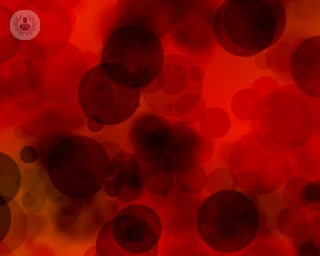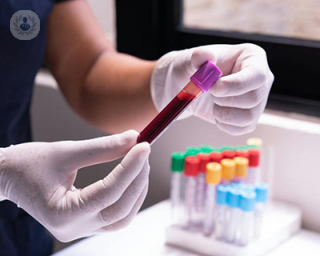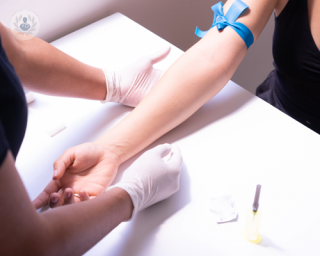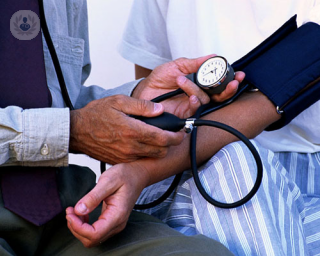Blood test
Dr Ummer Qadeer - GP (general practitioner)
Created on: 09-15-2020
Updated on: 04-26-2023
Edited by: Sophie Kennedy
Why are blood tests performed?
Blood tests are extremely common and are performed for a variety of reasons. They can be used for general health assessments, checking for infections, evaluating organ functionality and screening for genetic conditions.
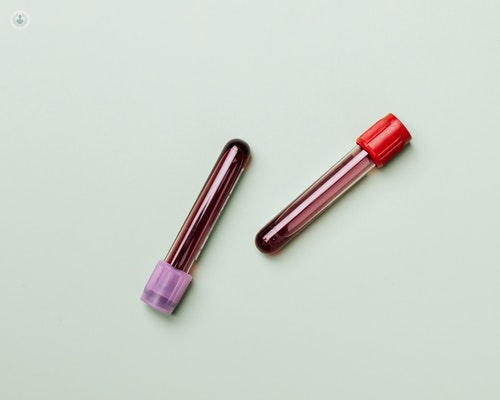
How to prepare for a blood test
Before your test, you will be given specific instructions to follow to help you prepare for your blood test. It is of vital importance that these instructions are followed to ensure that the results of the test are not affected.
Preparation usually varies depending on the type of blood test that you are having, examples of things you may be asked to do beforehand include:
- Avoid eating or drinking anything other than water for up to twelve hours before the time of your test
- Stop taking certain medicines which affect your blood
- Refrain from certain activities which can affect blood flow such as exercise or smoking
Blood test procedure
A blood sample is taken from a part of the body that is easily uncovered, where veins are close to the surface. In adults, the blood vessels in the arm are most commonly used, while blood samples from children are usually taken from the back of the hand.
A tourniquet is used to squeeze the arm, which slows down the blood flow and makes the vein swell, making it easier to take a sample. The area of skin may be cleaned with an antiseptic wipe before the sample is taken using a syringe. Most people feel a slight pricking sensation as the needle pierces the skin, but it shouldn't be painful.
The tourniquet will be removed once the blood sample is taken and you will be given a piece of cotton-wool to use to apply pressure to the skin in order to minimise bleeding.
After the test
Most people don't feel any adverse effects from blood tests as only a small amount of blood is taken. Some people feel dizzy or faint during and after the test, although this is often related to fear of needles. After the needle is removed, you might have a small bruise on the arm, however, it won't be too painful and should disappear in a few days.

